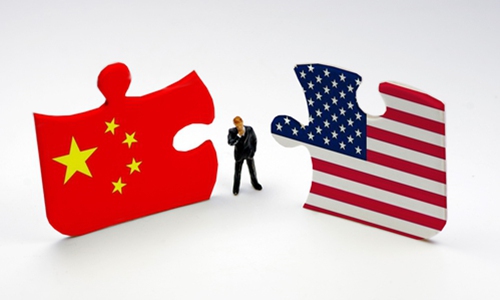Which way will the international winds blow after COVID-19 pandemic?
By William Jones Source:Global Times Published: 2020/5/29 13:04:25

Photo: VCG
As President Trump announced that he will hold a G7 Summit at the White House in June, in the hope of bringing the world economy back into operation after the lockdown of a large amount of world production during the COVID-19 pandemic, he will no doubt also make a concerted effort to pull the large G7 countries behind his campaign of ostracizing China. And while the other major countries will probably come to Washington at Trump's invitation, it is far from clear that they will follow his lead in this ill-designed campaign.
Most of the countries do not hold China accountable for the coronavirus, nor for any purported delay in reacting to it. And while the US remains the major military and economic power within the G7, US "soft power" has begun to lose its luster.
In recent G7 meetings there has been even more dissent from the US views because of what many see as the high-handed attitude of the Trump presidency. While personal relations will, of necessity, remain cordial, the political relations will still be at loggerheads over some issues. And never more than over the vociferous attacks on China blaring out from the White House and from the pompous US State Department.
But the world situation is no longer the way it was 100 years ago when it was easy to push around a weak and vacillating China. Now one of the major engines of the world economy, China has also proven itself as a major force in the world and one that has produced very beneficial effects for the world. The China-proposed Belt and Road Initiative (BRI) has helped to provide the basis for many poor countries in Asia, Africa, and Latin America to chart a path for development, or to help them get back on their feet after many years with a depressed economy. The development in Africa, in particular, has been absolutely stunning. And within China itself, the ambitious poverty alleviation campaign has accomplished goals that no one previously thought possible.
And while President Trump's commitment to pull the US out of Afghanistan and to extract the US from the interminable conflicts in the Middle East has been laudable and has garnered support internationally, his continued use of unilateral tariffs and his shunning of multilateral agreements in order to more easily assert what he believes are US "prerogatives," have turned a lot of people off to the pressure tactics of the Administration. And while many countries, including those in the G7 "club," have reaped tremendous benefits from the increased trade with China, they are not inclined to punish "the goose that laid the golden egg."
China's diplomacy, including the BRI, has won accolades from major international institutions, including the United Nations. And many realize that the speed with which China overcame the coronavirus epidemic had won precious time for the other countries to prepare for their own onslaught, time which many of them squandered. And as China came out of the crisis, they continued to gear up their industry to produce what other countries needed in the form of medical equipment and supplies.
And while the US is promising to replace the benefits these nations have received through their cooperation with China, there is little confidence that the US today has the capability, or the inclination, to play the beneficial role that China has played globally in the last few years with its Belt and Road Initiative, particularly with regard to the developing world.
More importantly, most of the world is viewing the growing animosity from the US toward China as pushing the world toward military conflict between two major powers, both armed with nuclear weapons. And you don't have to have read Clausewitz to understand that when political tensions are driven to their ultimate degree, the issues will ultimately be decided on the battlefield. And in the age of nuclear weapons, that could be Armageddon. The only rational solution is that the US and China begin to find a diplomatic way of resolving their differences. This will involve the US showing the due respect to China, as well as its governing Communist Party of China, without which none of the achievements, the poverty alleviation, the BRI infrastructure programs or the quick overcoming of the pandemic, could have been achieved.
Given the sense of reason, which I believe that ultimately triumphs in political decision-making, when President Trump sounds the trumpet to mobilize the troops for a full political onslaught on the People's Republic of China, no one will come. And perhaps even the president himself, who has shown a degree of rationality in his time in office, can also come to his senses and return to his original program of working together with countries like Russia and China, for the common benefit of humanity.
The author is the Washington Bureau Chief of Executive Intelligence Review and a non-resident fellow of the Chongyang Institute for Financial Studies. opinion@globaltimes.com.cn
Posted in: VIEWPOINT